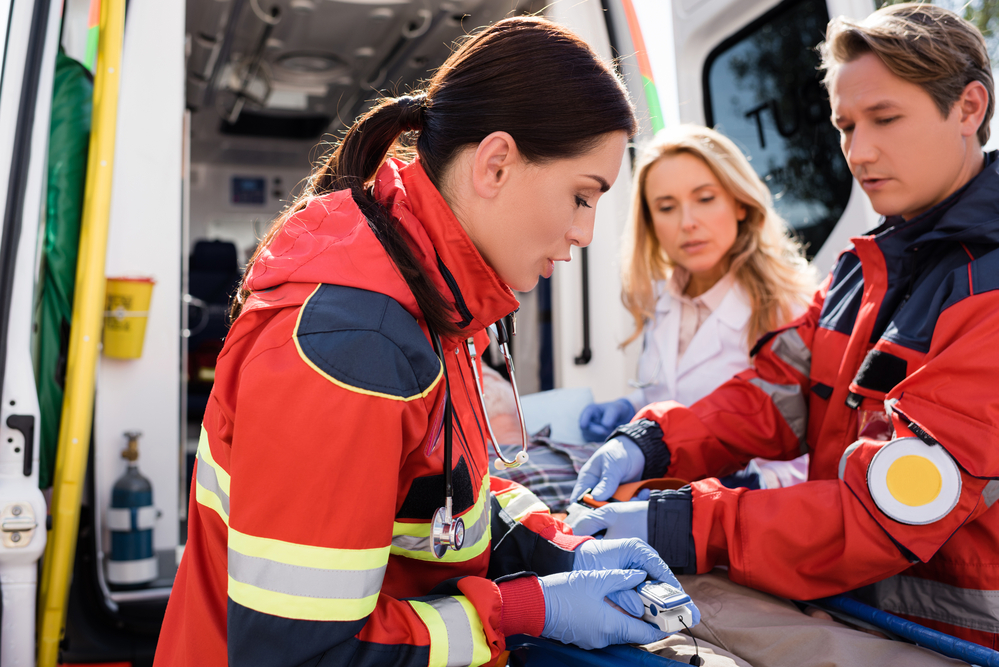
First responders face unique challenges that can affect their mental health in the line of duty. This comprehensive guide sheds light on the pressing issues of suicide, addiction, and Post-Traumatic Stress Disorder (PTSD) prevalent among first responders. By understanding the magnitude of these mental health problems, recognizing the signs, and knowing how to seek help, we can support these brave individuals who dedicate their lives to serving our communities with the proper addiction and mental health treatment for first responders.
First responders are often hailed as heroes, and rightly so. They are the first on the scene during emergencies, risking their lives to save others. However, the harsh reality is that this line of work often exposes them to traumatic experiences, leading to serious mental health problems such as suicidal ideation, addiction, and PTSD.
Suicide rates among first responders are a growing concern, reaching levels that demand immediate attention and action. Studies indicate that first responders, including police officers, firefighters, and emergency medical technicians, are likelier to die by suicide than in the line of duty.
The constant exposure to traumatic events, coupled with the high-stress nature of their jobs, significantly increases their risk of suicidal ideation and attempts. Each emergency call can potentially expose first responders to scenes of extreme distress, violence, and loss. It’s crucial that we recognize the immense psychological burden that first responders carry and take proactive steps to have mental health professionals provide them with the resources and support they need to cope with these challenges.
Addiction is another hidden crisis affecting first responders, often lurking beneath the surface of their daily lives. The high-stress nature of their work and the traumatic events they witness can lead some first responders to turn to alcohol or drugs as a coping mechanism. This self-medication can temporarily relieve the emotional pain and stress, but it can quickly spiral into addiction, further exacerbating their mental and behavioral health challenges.
The prevalence of substance use disorders among first responders is significantly higher than in the general population. This is not surprising given their intense pressures, but it’s a reality often overlooked. The consequences of addiction can be devastating, impacting not only the individuals but also their colleagues, families, and the communities they serve.
Despite the serious consequences, the stigma surrounding addiction often prevents first responders from seeking the help they need. Many fear that admitting to a serious substance use disorder or problem could jeopardize their job or lead to judgment from their peers. This can result in a cycle of secrecy and shame, making addiction a silent epidemic within this community.
Addressing this issue requires a multifaceted approach, including education about the risks of substance use, access to addiction treatment services, peer support and a shift in organizational culture to encourage first responders to seek help without fear of reprisal.
Post-Traumatic Stress Disorder (PTSD) is a common issue among first responders, given their frequent exposure to traumatic events. From accidents and disasters to violent incidents, first responders witness situations that most people never see in their lifetimes. This can lead to PTSD, characterized by intrusive memories, heightened anxiety, emotional distress, and even physical symptoms like insomnia and a heightened startle response.
The impact of PTSD when coupled with addiction can be debilitating, affecting every aspect of a person’s life, from their work performance to their relationships. Understanding and addressing PTSD in first responders is crucial to supporting their mental health, ensuring they can continue to perform their vital roles, and enhancing their overall quality of life. That is why it is important to seek out PTSD and addiction treatment for this vital population within our community.

First responders are at a heightened risk for suicide, addiction, and PTSD due to the unique nature of their work. They are often the first on the scene during emergencies, exposed to traumatic events that can have lasting psychological impacts. The stressful nature of their work, the impact of repeated exposure to trauma, and the stigma of mental health in first responder communities all contribute to this risk. Understanding these factors is the first step towards addressing these issues and providing first responders with the support and mental health resources they need.
First responders operate in high-stress environments that require quick decision-making under pressure. They often work long hours in unpredictable and potentially dangerous situations. This constant state of alertness and stress can affect emergency responders and their mental health, increasing the risk of conditions like PTSD, addiction, and suicidal ideation.
Repeated exposure to traumatic events is a standard part of a first responder’s job. Whether it’s witnessing the aftermath of a violent accident, rescuing victims from a disaster, or dealing with the death of a patient, these experiences can have a profound psychological impact. Over time, this repeated trauma can lead to PTSD, addiction, and an increased risk of suicide.
Despite the mental health risks associated with their work, there’s often a stigma around mental health issues in first responder communities. Many first responders feel the need to maintain a tough exterior, fearing that admitting to struggling with mental illness could be seen as a sign of weakness. This stigma can prevent first responders from seeking the help they need, exacerbating mental health issues like PTSD, addiction, and suicidal ideation.
Suicide, addiction, and PTSD are interconnected issues that often co-occur in first responders. PTSD, stemming from repeated exposure to traumatic events, can lead to intense feelings of despair and hopelessness, increasing the risk of suicide. Similarly, some first responders may turn to substances to cope with their symptoms of PTSD, leading to addiction. Understanding this connection is crucial in addressing these issues and providing comprehensive support to first responders.
Recognizing the signs of suicide risk, addiction, and PTSD in first responders is the first step towards getting them the help they need. Symptoms may include:
By staying vigilant and understanding these signs, colleagues, friends, and family can intervene early and save lives.
Signs of suicide risk in first responders may include talking about feeling hopeless or trapped, withdrawing from social activities, changing mood or behavior, and expressing a sense of unbearable pain. If these signs are noticed, it’s crucial to reach out and encourage the individual to seek professional help.
Addiction in first responders may manifest as increased serious substance abuse or use, changes in behavior such as increased secrecy or defensiveness, neglecting responsibilities, and physical symptoms like weight loss or changes in appearance. Recognizing these signs can prompt early intervention and treatment.
Symptoms of PTSD in first responders may include intrusive memories of traumatic events, avoidance of trauma reminders, changes in mood such as increased irritability or feelings of numbness, and physical symptoms like difficulty sleeping or heightened startle response. Early recognition of these symptoms can lead to timely treatment and support.
For first responders struggling with suicidal ideation, addiction, and PTSD, help is available. At Ranch Creek Recovery, we understand your unique challenges and offer specialized treatment programs designed for first responders to address these issues. Our team of experienced professionals is committed to providing the support you need to overcome these challenges and regain your mental health and well-being. Call us today at (951) 643-0573 to begin your journey toward improved mental wellness and a life free from addiction.

Have Questions? We're here to help.
(877) 997-8931